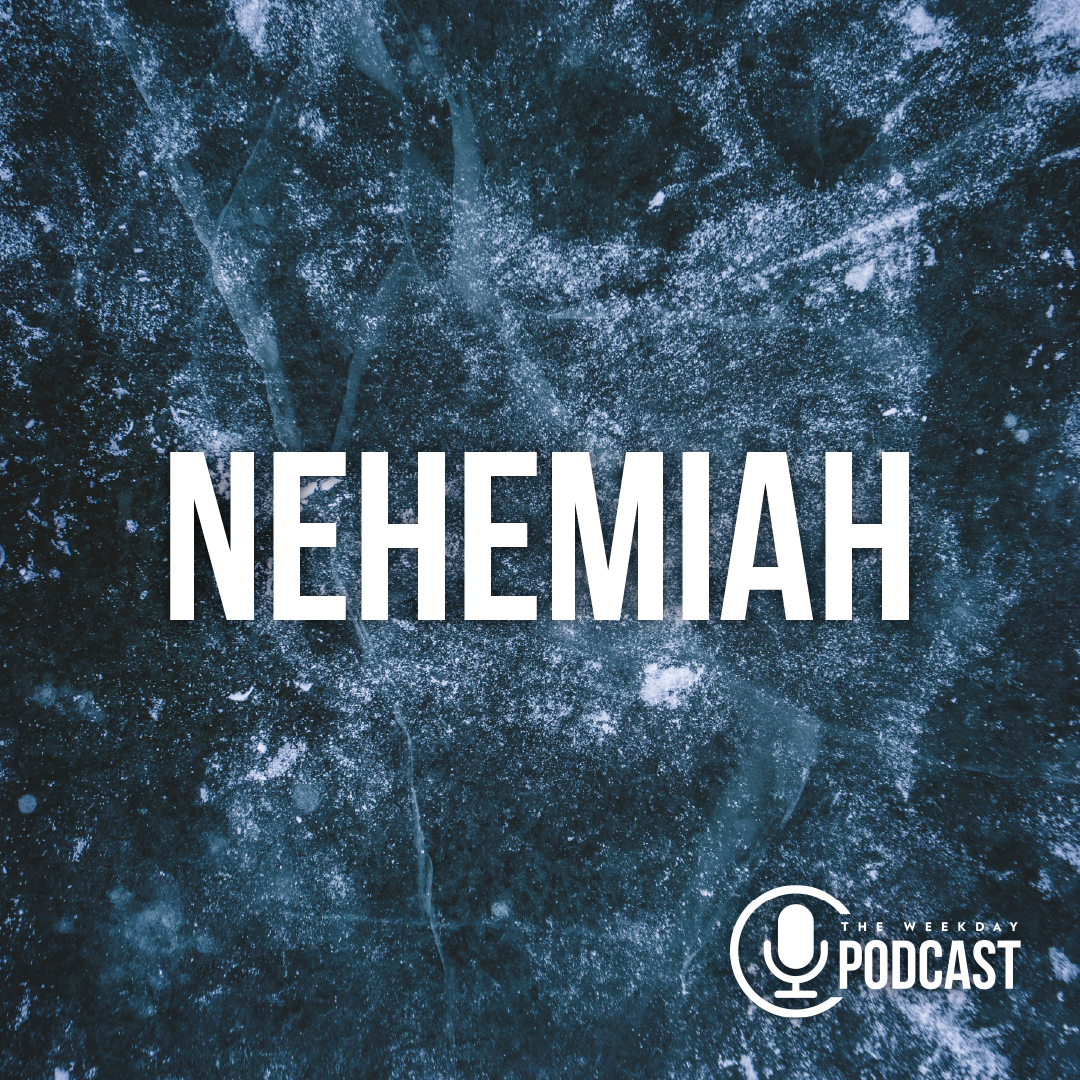Episode Transcript
[00:00:07] Speaker A: Welcome to the weekday podcast of Sugar Hill Church where we desire to help you know God and discover your purpose, whether you're exercising, driving, meditating, or just hanging out while you tune in with us today. Thanks. We hope these next five minutes help you feel encouraged and inspired for your day.
[00:00:22] Speaker B: Hi everybody and thanks so much for joining me on today's weekday podcast. My name is Pastor Chuck Allen and I'm so glad that you're listening today. Today I want to take you back to John chapter 6 later in the chapter beginning in verse 41. And think about this in practice. Most of us operate by ranking sins. There are bad sins, not so bad sins. I mean sins that are tolerable, sins that are intolerable. That's how we see sin. Just think about which of your sins you're willing to talk about in public and which you would keep secret. And it's true that some sins impact other people more than other sins, right? I'd rather have a self righteous hypocrite living next door than a violent psychopath. At least self righteous people put the, you know, the trash bins out. But in God's eye, sin is sin. There's no ranking. Every sin is an act of doubt against God, against His Word, and an act of defiance against his kingdom. Grumbling, I would imagine, is in most people's not so bad category, or worry, or doubt. But that's not how God sees it. From God's perspective, grumbling is a declaration that God is a bad king who doesn't run the world very well and a bad father who doesn't care for his kids very well. It's a way of saying, I could do a better job than God. Well, the story of Moses giving manna to Israel in the wilderness, in their journey, hangs in the background of this conversation between Jesus and the crowds. In John chapter 6, beginning in verse 41, it's a story of God's provision. But it's also a story of Israel's persistent ever, never stopping grumbling. In Exodus chapter 16, verse 2, it says, in the desert.
Excuse me, in the desert. The whole community grumbled against Moses and Aaron, but Moses knew what lay ahead or behind their complaints. You are not grumbling against us, you're grumbling against the Lord, he said. Indeed, the story of manna is the second of three stories of Israel's grumbles. You can find it in Exodus 15 and in Exodus 17. Now the Jews listening to Jesus are at it again. At this, the Jews there began to grumble about him. That's John, chapter 6, verse 41. In Exodus 17, the three grumbling stories come to a climax when God convenes a trial. God himself is in the dock along with the people. This is the case of God versus humanity. God stands before a rock and the elders of the people stand on the opposite side of Moses. Moses stands in the middle and holds the staff which brought judgment against Egypt. He's the one who will pass the judgment. We can all see who's guilty and who is innocent. Anyone who has ever grumbled deserves to be condemned. And God deserves to be vindicated. Well, the scripture says, I will rain down bread from heaven for you. God had said in Exodus 16, verse 4. And in the morning you'll see the glory of the Lord.
The evidence of God's generosity laid scattered across the ground every morning. Just as the evidence of God's generosity is all around us. Well, all day, every day. Jesus, as it were, reconvenes that trial when he says, stop grumbling in John 6:43. On trial are the religious leaders versus Jesus. At stake is whether Jesus really is the bread of life from heaven. For now, we'll have to wait for the verdict that'll come when God raises Jesus from the dead. The final proof that Jesus is the bread of life will come when he gives eternal life to those who eat with him. But there was a dramatic twist in the trial of Exodus 17. Can you see how these things go together? Old and New Testament the fulfillment of the law. At its climax, God declared strike the rock, the place where God was standing. The rod of judgment came down on God instead of the people, on the innocent instead of the guilty. And as a result, water gushed from the rock to quench the thirst of God's people. That rock, my friend, was Jesus. That's what Paul says in 1st Corinthians 10. Now, don't miss this. When Paul says this in 1st Corinthians 10:4, what he's saying is, Jesus died in our place so that our grumbling might be met with grace. Oh, how beautiful. Right? We receive life through the cross as Jesus is about to explain. And as he died, water flowed from his wound side to quench our spiritual thirst. The antidote, my friend, for grumbling is gratitude. What are the signs of God's generosity that are all around you today? Choose today to replace your grumbling with gratitude, to replace what you think you need with what you know you need, which is more to Jesus. Give thanks for everything around you and the ultimate sign of God's generosity. Remember, friend, is the cross, for that is there and that was there that he gave his only Son for you give thanks to him for that. Be sure to know in Christ and Christ alone, you have life. God bless you, friend. Thanks so much for joining me on today's weekday podcast.
[00:05:53] Speaker A: Thanks so much for joining us today for the weekday podcast. Our prayer is that the encouragement you just heard would help you live more like Jesus today. We would love to see you at Sugar Hill Church for one of our gatherings each Sunday at 9, 15 and 11, and we're always streaming live at Live Sugarhill Church. Thanks again for joining us today. As always, if today's message encouraged you, share it with friends and family by tapping the share button. Have an awesome.


